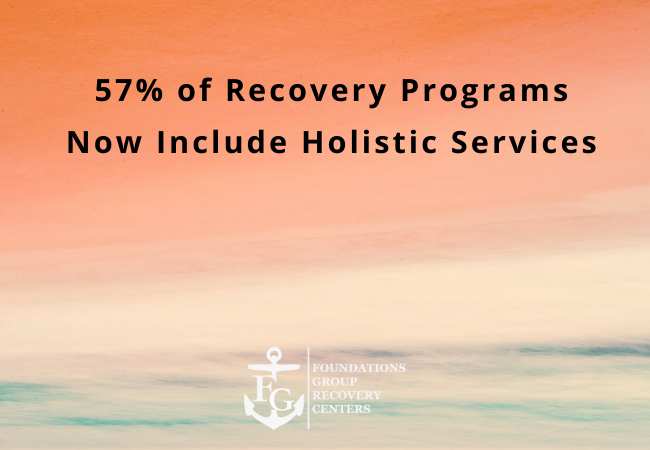Addiction recovery is deeply personal. While some find strength in time-tested methods like behavioral therapy or medication-assisted treatment, others are drawn to approaches that blend physical, emotional, and spiritual healing. At the heart of the debate between holistic and traditional addiction therapies lies the essential question: What works best for you?
The truth is, no single path works for everyone. That’s why understanding the core differences between these two approaches is essential when deciding on the right treatment plan. This guide breaks down both paths, explores their strengths, and helps you discover which method—or combination—may suit your needs best.
What Is Traditional Addiction Therapy?
Traditional addiction treatment focuses on evidence-based methods that have been clinically proven over time. These include structured programs that use cognitive-behavioral therapy (CBT), group counseling, 12-step models, and sometimes medications to manage withdrawal and reduce relapse risk.
Key Elements of Traditional Therapies:
-
Medical Detox: Often the first step, medically supervised detox supports individuals as substances are safely cleared from the body. This process is typically monitored by clinical staff.
-
Individual Therapy: One-on-one sessions with a licensed therapist provide space to explore root causes of addiction, mental health conditions, and coping strategies.
-
Group Therapy: Connecting with others who are on the same journey fosters accountability and shared healing.
-
12-Step Programs: These spiritual-based programs (like Alcoholics Anonymous or Narcotics Anonymous) guide individuals through structured steps toward recovery and often include peer sponsorship.
Traditional therapy has helped millions reclaim their lives. However, it tends to focus primarily on the psychological and behavioral aspects of addiction rather than the full spectrum of mind-body-spirit healing.
What Is Holistic Addiction Treatment?
Holistic addiction treatment is based on the idea that recovery happens when the entire person—mind, body, and spirit—is in harmony. These programs are not limited to clinical or therapeutic techniques but include complementary practices like meditation, nutrition, yoga, acupuncture, art therapy, and nature immersion.
Core Principles of Holistic Therapy:
-
Treat the Whole Person: Rather than focusing solely on symptoms, holistic care examines physical, emotional, and spiritual imbalances.
-
Emphasize Self-Healing: Holistic programs often empower individuals with tools for self-regulation and inner peace.
-
Non-Pharmaceutical Approaches: Instead of medication, natural healing methods are favored wherever possible.
-
Balance and Wellness: Practices are designed to restore balance in the nervous system, emotional life, and body energy.
Many people find that a Holistic Addiction Treatment Program in Massachusetts opens new pathways to recovery that feel more aligned with their values and inner growth goals.
Comparing the Two: Strengths and Limitations
There is no “better” approach—only what’s right for your unique situation. Here are a few points of comparison:
1. Focus of Treatment
-
Traditional programs aim to change behaviors and manage symptoms through therapy and sometimes medication.
-
Holistic programs aim to restore balance in all aspects of life and may include natural and spiritual techniques.
2. Length of Programs
-
Traditional programs often follow a set structure and time frame (30, 60, or 90 days).
-
Holistic treatment may be more flexible and individualized based on the client’s evolving needs.
3. Medical Support
-
Medical supervision and detox are central to many traditional programs, especially for severe substance use disorders.
-
Holistic programs may provide fewer medical interventions but often work in tandem with medical providers if needed, such as during Alcohol & Drug Detox in Massachusetts.
4. Spirituality and Alternative Practices
-
Holistic therapy is often deeply spiritual (though not religious) and incorporates mind-body practices that aren’t part of conventional care.
-
Traditional therapy may only include spirituality through 12-step references or not at all.
Blending Both Worlds: The Rise of Integrated Treatment Models
Increasingly, rehab centers are combining the best of both approaches to support diverse needs. For example, someone might begin their recovery with traditional detox and therapy, and then gradually add in holistic practices like mindfulness, yoga, or expressive arts as they stabilize.
This hybrid model is becoming more common, especially in programs offering flexible formats like an Intensive Outpatient Program in Massachusetts, where individuals can participate in therapy during the day and engage in holistic practices at home or during evening hours.
Who Benefits Most from Holistic Approaches?
While holistic therapies can benefit anyone, they may be especially effective for:
-
People who’ve tried traditional rehab and relapsed
-
Individuals with chronic stress, anxiety, or trauma
-
Those seeking a more spiritual or wellness-focused journey
-
Clients open to alternative healing modalities like reiki, breathwork, or somatic therapies
Programs such as Day Treatment Programs in Massachusetts often include both evidence-based methods and holistic options, offering a bridge between the two worlds.
Who Benefits Most from Traditional Therapies?
Traditional approaches may be best for:
-
Individuals with severe or long-term addiction
-
People requiring medical supervision for withdrawal symptoms
-
Those who benefit from structure, accountability, and time-tested methods
-
Clients with co-occurring mental health diagnoses that need clinical support
In more structured programs, such as a Half Day Treatment Program in Massachusetts, clients might receive traditional therapy in the morning and integrate complementary practices as they gain more stability.

Making the Right Choice for Your Recovery
Choosing between holistic and traditional addiction therapies is a deeply personal decision. Some questions to ask yourself include:
-
Do I prefer a spiritual or clinical environment?
-
Have I tried traditional rehab before, and how did it go?
-
Do I need medical detox or psychiatric care?
-
What kind of healing resonates most with me?
Fortunately, many Addiction Treatment Programs in Massachusetts now offer customizable paths, allowing individuals to experience both traditional and holistic care without choosing one over the other.
Why Choose Foundations Group Recovery Centers?
At Foundations Group Recovery Centers, we recognize that healing from addiction is not simply about quitting substances—it’s about rebuilding your life from the inside out. That’s why we’ve created a treatment environment that honors every part of who you are—your mind, body, and spirit. Whether you’re drawn to the structure of evidence-based care or the self-discovery encouraged by holistic healing, we offer a place where both approaches can thrive together.
Our dedicated team consists of experienced clinicians, licensed therapists, and holistic practitioners who work collaboratively to design an individualized plan that addresses all layers of your well-being. From the first phone call through each stage of your treatment, we meet you where you are. Whether you’re stepping into detox or easing into therapy through a Half Day Treatment Program in Massachusetts, we support your journey with care, compassion, and consistency.
We also understand that no two recovery stories are the same. That’s why we focus on flexibility and personal choice. Want to balance talk therapy with yoga and breathwork? Interested in combining traditional relapse prevention strategies with creative expression and nutritional counseling? We’ll build that for you. We don’t just treat addiction—we help you rewrite the story of your life.
When you walk through our doors, you’re not just entering a treatment center—you’re stepping into a safe, supportive community committed to helping you find peace, purpose, and freedom.
Conclusion
Recovery isn’t about choosing the “right” treatment approach on paper—it’s about finding what truly resonates with your heart, your body, and your vision for a better future. For some, the clinical structure of traditional rehab provides the foundation they need to feel secure, focused, and accountable. For others, healing is sparked through mindfulness, nature, and the freedom to explore emotions creatively. And for many, the most effective path is one that blends the strengths of both.
At Foundations Group Recovery Centers, we believe deeply in the power of choice. Our team is here to help you understand your options and create a path forward that supports who you are today—and who you want to become. Whether you begin your journey with substance use Treatment Programs in Massachusetts or expand your healing through holistic therapies, you’ll be supported every step of the way by people who believe in your potential.
You don’t have to do this alone—and you don’t have to settle for a treatment plan that doesn’t feel right for you. Let’s work together to craft an approach that brings your entire self into alignment and sets you up for lifelong recovery. Call us today at (844) 763-4966 to talk to a member of our compassionate team. Your healing can begin now.
Frequently Asked Questions (FAQs)
What is the difference between holistic and traditional addiction treatment?
Holistic addiction treatment focuses on healing the whole person—mind, body, and spirit—through practices like yoga, meditation, and nutritional therapy. Traditional treatment emphasizes evidence-based methods such as individual therapy, group counseling, and medication-assisted treatment.
Is holistic addiction treatment effective on its own?
While holistic methods can be powerful, they are often most effective when combined with traditional therapies. Holistic practices support emotional and physical wellness, but clinical interventions are essential for addressing the root causes of addiction.
How do I know which treatment approach is right for me?
Choosing between holistic and traditional treatment depends on your individual needs, past experiences with treatment, and personal values. Many people benefit from an integrated approach that combines both.
Can I switch approaches during treatment?
Yes, flexible programs like those at Foundations Group Recovery Centers allow you to adjust your treatment plan as your needs evolve. You can start with one method and add or shift into others as you progress.
Are holistic programs covered by insurance?
Some holistic services may be covered when part of an accredited addiction treatment program. It’s best to consult with your provider or our admissions team for detailed insurance verification.
What are examples of holistic therapies used in addiction recovery?
Common holistic therapies include acupuncture, art therapy, mindfulness meditation, yoga, breathwork, massage, and nutritional guidance. These therapies work alongside traditional clinical care to support deeper healing.

